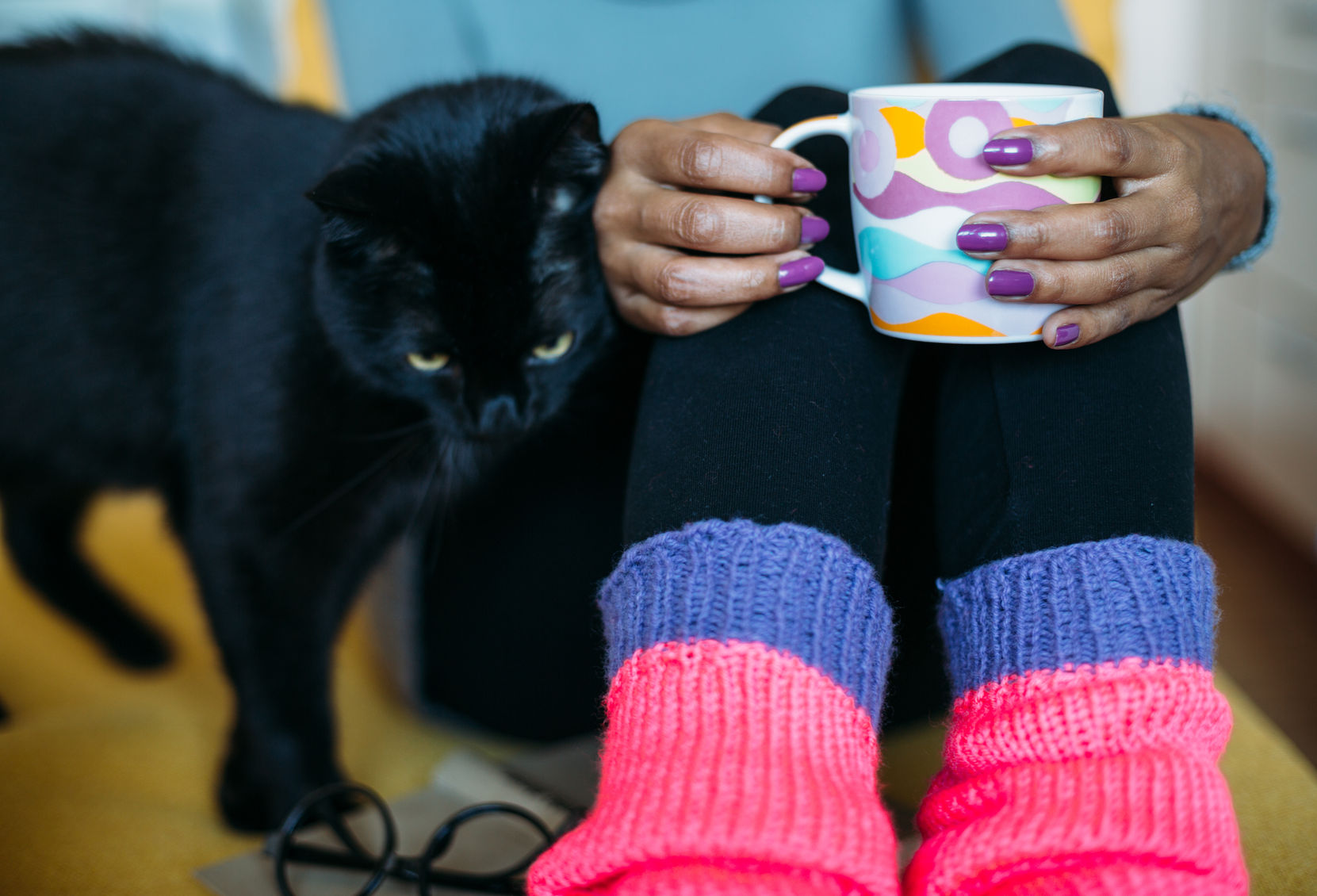
sometimes you need to just curl up with a cat and a cup of tea, you know?
IN A WORLD OF INEQUALITY when it comes to wealth, privilege, and opportunity, a preoccupation with social justice pervades our thoughts, conversations, and lives. Increased visibility of marginalized communities and the challenges they face has raised awareness and pushed people to be more vocal about oppression. Women are talking about the wage gap, and black people are talking about institutional racism and police brutality. Photo and video journalism bring reality to our screens every day.
Managing the Intensity of Activism
Social media makes it possible to expose and discuss these issues all the time, making it easy to forget to rest. People are engaging in conversations about gender, race, and class, and recognizing the widespread effects of phobias and -isms. Marginalized communities are speaking up and reclaiming power, as allies amplify their voices and use their privilege to reach more people.
Not only is action exhausting, but having conversations about these issues takes its toll on marginalized people. It is easy to become programmed to respond to everyone and everything, and steel oneself in anticipation of opposition. With so few people visibly and continuously doing this work, it is tempting to try to compensate. Work can quickly bleed into life, disrupting the work-life balance. When activists leave home to work and return home only to find more work, burnout is imminent.
Preventing Burnout
Protests, petitions, social media management, constituent support, presentations, and everyday conversations with people who don’t understand the battle is a full-time job. Many activists have this job in addition to another full-time job, balancing it with other duties like household management. Little time is left for leisure activities.
In many cases, even entertainment becomes work. When engrossed in social justice work, it is all too easy to spot the absence of people of color in television, the superficial roles played by women in movies, and the dangerous ideas about sex espoused by popular song lyrics. Before long, an activist overworked in both their private and public lives will inevitably succumb to exhaustion. When the body, mind, and spirit do not have time for renewal, they break down without warning. Rebuilding generally takes longer than wearing down, and this can lead to guilt and resentment within the activist, having negative effects on their work.
To avoid this kind of burnout, activists need to pay attention to their bodies. Diet, exercise, and rest are important. Activism takes physical, mental, and emotional energy. It is important to care for both mind and body as good health makes it possible to continue the work. It is better to plan breaks from the work to rebuild than to be subjected to an unplanned break that could be detrimental to one’s work.
Actress and philanthropist Jada Pinkett-Smith puts it well: “You cannot be good to other people if your health is declining. You cannot be good to other people if you’re miserable. You cannot be good to your children if you have them, to your spouse if you have one, to your job and your career if you are not emotionally and mentally and physically healthy.”
Realizing Self-Care is Diverse
As intensity builds, it becomes increasingly important for activists to find ways to take care of their health, but also to relax and enjoy life. People find different ways to care for themselves, varying in cost, form, and frequency. Self-care is as diverse as the people who practice it; some rely on meditation as a daily practice, spending anywhere from one minute to 90 minutes in silent or guided meditation, while high-impact physical activities like running and weight training are methods of self-care for others. For many people, yoga is vital to their connection between mind and body, serving as a reminder of the dependence of one on the other. For others, self-care is a weekend shopping trip with friends, a quiet dinner for one in the corner of a restaurant, or a bath by candlelight. There is no limit to the ways people show themselves love and take time to just be, free of obligations and expectations.
“Caring for myself is not self-indulgence, it is self-preservation, and that is an act of political warfare.”
– Audre Lorde
Letting People Have Their Joy
Self-care is often linked to trends. Television shows like Empire, Devious Maids, and
Housewives of Atlanta have taken off, bring just the right amount of drama and superficiality to simultaneously engage and relax an active brain. The story lines are often wrought with emotion, but trite, allowing viewers lock into them, connect with characters, and buy in to the plot, waiting for specific outcomes. These shows have the ability to transport activists from the world of social justice to worlds that are almost absurd, and give them something new and less taxing,to focus on. Most recently Pokémon Go has captured the attention of many, engaging smartphone users in a free game using augmented reality to get people outside and moving around. Many scoff at the idea of adults playing this game, failing to see its therapeutic properties. They also fail to realize that fun has no age limits.
Self-care should not be a guilty pleasure, no matter what form it takes. Activists need to prioritize themselves, both for their own benefit and for the continuity of their work. This cannot be emphasized enough: There is nothing trivial about caring for oneself, especially when dedicated to caring for others. As we are reminded every time we travel, we have to put our own masks on first.
















